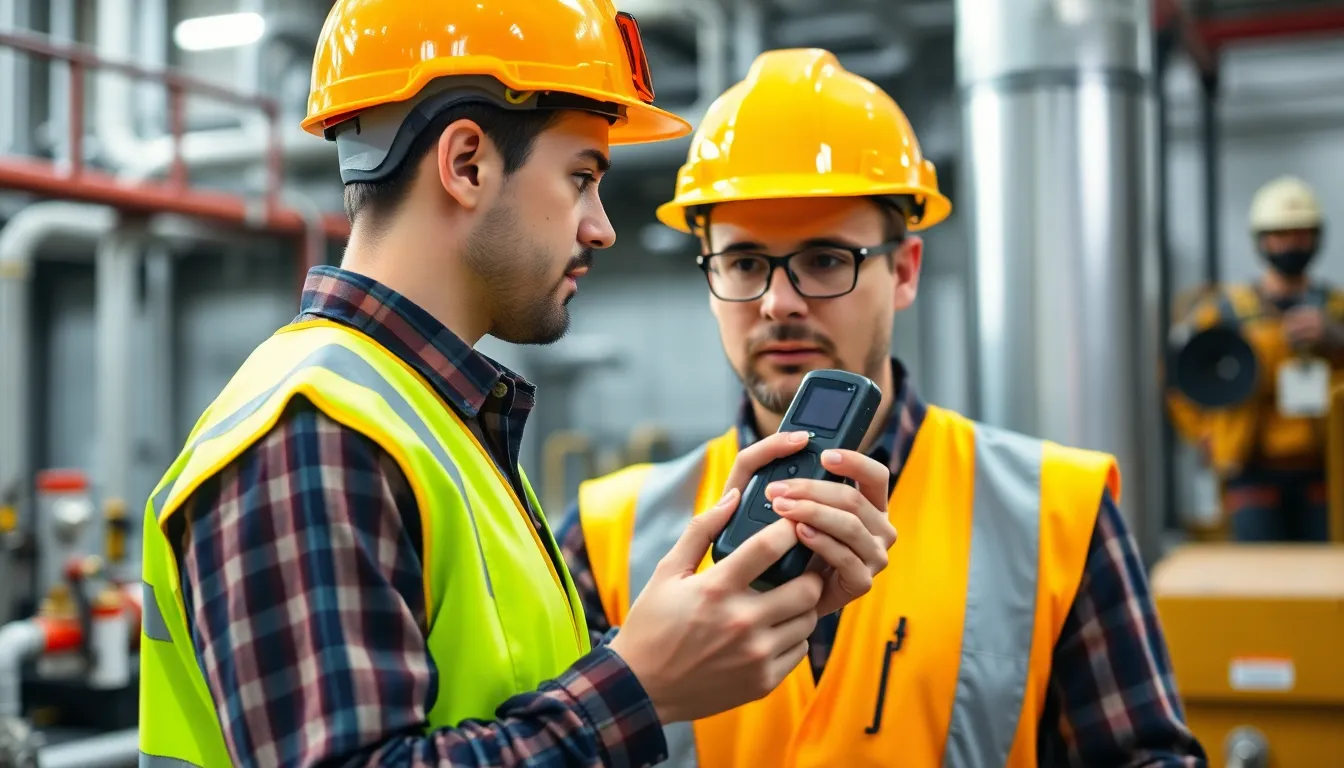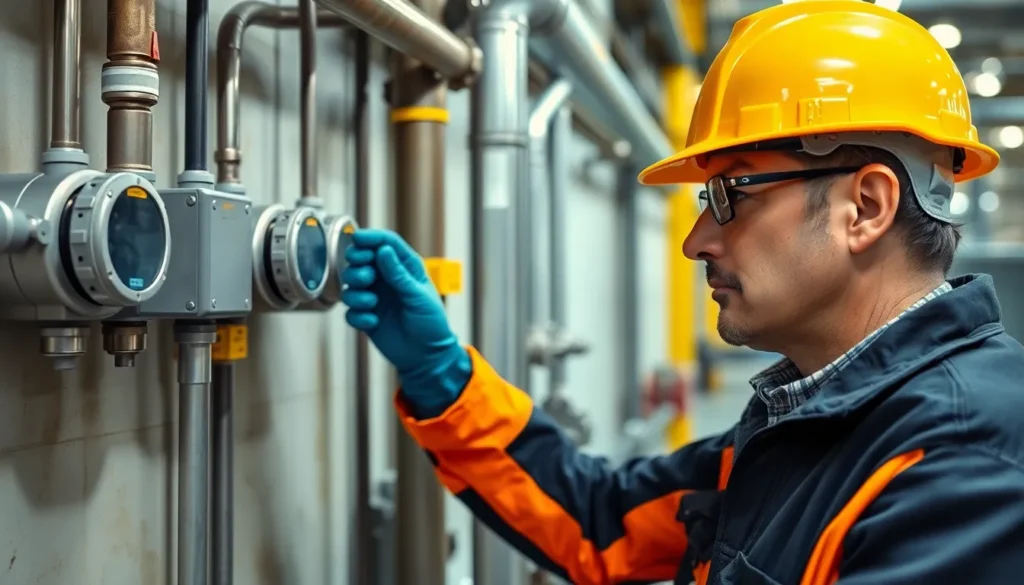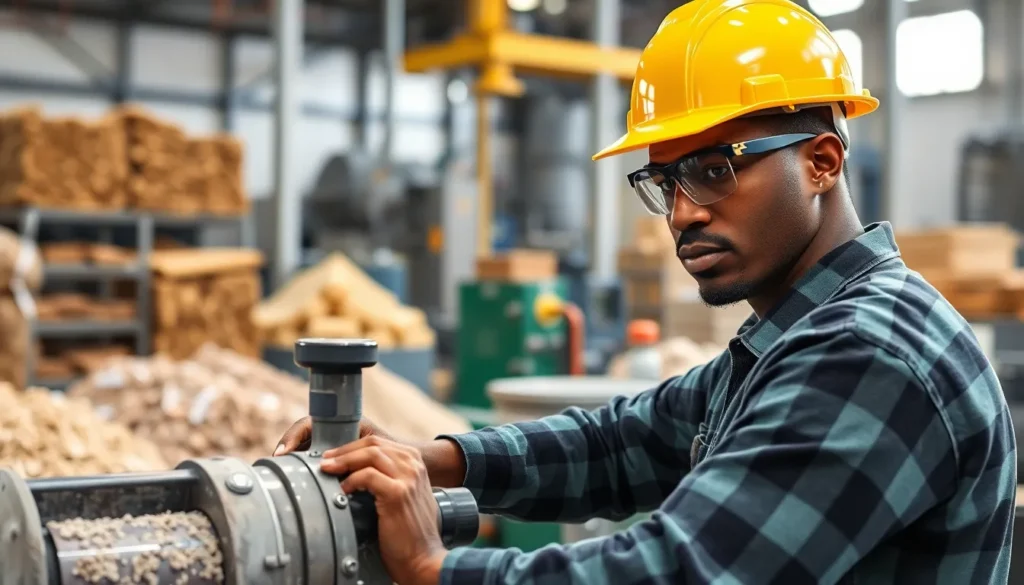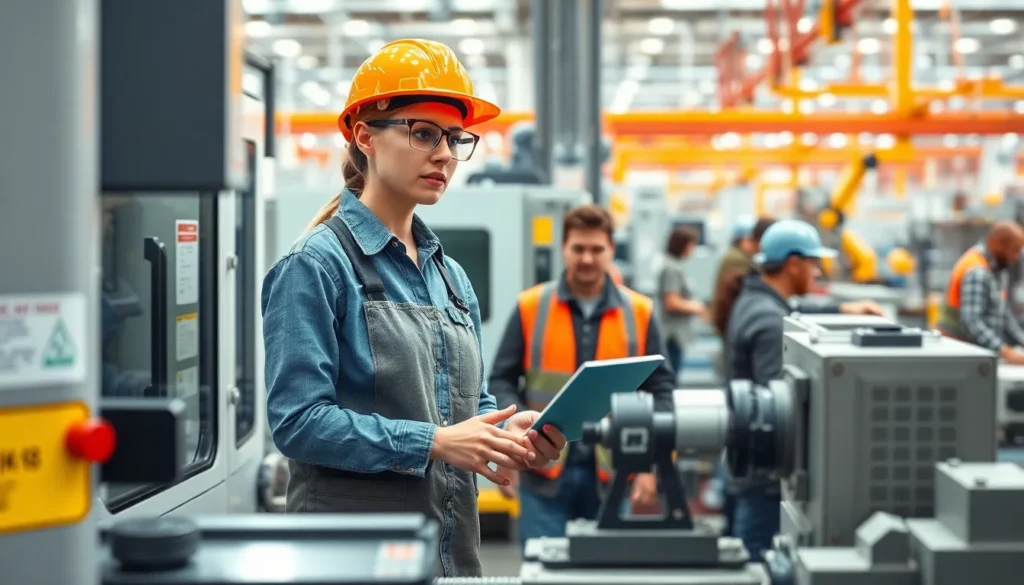In a world where gas leaks can turn a cozy evening into a scene straight out of a disaster movie, gas detection services are the unsung heroes we never knew we needed. Imagine a trusty sidekick that sniffs out trouble before it even has a chance to crash the party. These services don’t just keep homes and businesses safe; they offer peace of mind that’s as refreshing as a breath of fresh air.
With technology that’s smarter than your average superhero, gas detection systems are designed to catch leaks faster than you can say “What’s that smell?” Investing in these services isn’t just a wise move; it’s a no-brainer. After all, who wouldn’t want to avoid the drama of a gas leak? Let’s dive into the world of gas detection services and uncover why they’re essential for every safe space.
Gas Detection Services
Gas detection services play a vital role in maintaining safety and preventing hazardous situations. These services ensure rapid identification of gas leaks, offering protection for both residential and commercial environments.
Importance of Gas Detection
Safety remains the primary reason for utilizing gas detection services. Detecting gas leaks early mitigates risks of explosions, fires, and health issues. These services provide peace of mind, allowing individuals to feel secure in their environments. Regular monitoring contributes to compliance with regulatory standards, protecting businesses from legal repercussions. Moreover, investing in proper gas detection systems can lead to reduced insurance costs due to lower risk profiles. Many businesses leverage gas detection as part of their overall safety plan, enhancing workplace safety and efficiency.
Types of Gases Monitored
Various gases are monitored through gas detection services, including carbon monoxide (CO), natural gas (methane), and propane. Carbon monoxide poses serious health risks as it’s odorless and colorless. Monitoring methane is crucial due to its explosive potential in confined spaces. Propane detection safeguards against hazardous leaks that can occur during storage or use. Facilities also monitor hydrogen sulfide (H2S) in environments where it may be present, protecting workers from toxicity. Each type of gas requires specific sensors or detectors to ensure accurate and effective monitoring.
Technologies Used in Gas Detection

Gas detection technologies play a crucial role in ensuring safety across various environments. These systems utilize advanced mechanisms to monitor and detect hazardous gases effectively.
Fixed Gas Detection Systems
Fixed gas detection systems are permanently installed in locations prone to gas leaks. Typically, these systems feature multiple sensors that continuously track gas levels, providing real-time data. They connect to a centralized control panel, which alerts personnel immediately upon detecting harmful gas concentrations. Many industries, including manufacturing and oil and gas, rely on fixed systems to maintain safety protocols and comply with regulatory standards. Some units are designed to detect specific gases, such as carbon monoxide, methane, or hydrogen sulfide, ensuring comprehensive monitoring of potential risks.
Portable Gas Detectors
Portable gas detectors serve as essential tools for workers who operate in environments where gas exposure risks exist. These handheld devices offer flexibility, allowing users to monitor gas levels in various locations. Most portable detectors feature lightweight designs and provide real-time readings, which can be crucial during emergency situations. Many models also include alarm functions that activate when gas concentrations exceed predetermined thresholds. Workers across industries, such as construction and confined spaces, often utilize portable gas detectors for added safety measures, ensuring they can respond swiftly to potential hazards.
Benefits of Using Gas Detection Services
Gas detection services play a crucial role in ensuring safety and regulatory compliance across various environments. Utilizing these services provides significant advantages in enhancing work conditions and meeting industry standards.
Enhancing Workplace Safety
Workplace safety significantly improves through the implementation of gas detection systems. These systems identify gas leaks rapidly, minimizing the risk of accidents and potential health hazards. Workers equipped with portable detectors can respond quickly to danger, leading to safer operating conditions. Fixed gas detection systems further bolster safety measures, delivering real-time data to quickly alert personnel. Safety protocols benefit from early detection, which can prevent severe incidents such as explosions or fires. Overall, investing in gas detection services promotes a culture of safety that protects both employees and assets.
Compliance with Regulations
Compliance with industry regulations becomes easier with reliable gas detection services. Regulatory standards often mandate the monitoring of specific gases to ensure operational safety. Companies adhering to these requirements minimize legal risks and avoid hefty fines associated with non-compliance. Accurate monitoring aids in achieving compliance by ensuring that hazardous gas levels remain within acceptable limits. Moreover, documentation generated by gas detection systems serves as essential proof during inspections and audits. Meeting these standards enhances reputation while demonstrating commitment to employee wellbeing and environmental safety.
Choosing the Right Gas Detection Service
Selecting an appropriate gas detection service ensures safety and peace of mind. Various factors influence this choice, emphasizing the importance of thorough evaluation.
Factors to Consider
Safety features represent a primary consideration. Look for systems that detect multiple types of gases, including carbon monoxide and propane. Reliability matters, so choose services with proven track records and positive customer reviews. Response times significantly impact safety, with faster detection leading to quicker actions. Certification is crucial; verify that the company adheres to industry standards. Moreover, assess customer support availability to address concerns and assist users. Pricing should reflect quality, with transparent quotes and no hidden fees.
Questions to Ask Potential Providers
Inquiries pave the way for informed decisions. Start by asking about the range of gases detected by their systems. Ask for their experience with your specific industry, as expertise matters. Understanding the installation process is vital; inquire about timelines and any disruptions expected. Evaluate the maintenance plans offered and how often servicing occurs. Additionally, ask about training for staff on using the equipment effectively. Warranty details provide insight into the company’s confidence in their products, so don’t forget to ask. Finally, request references or case studies demonstrating their success with similar clients.
Conclusion
Investing in gas detection services is a proactive step toward ensuring safety in both residential and commercial spaces. With advanced technology at their disposal these services provide essential monitoring that can prevent catastrophic incidents. The peace of mind that comes from knowing gas leaks are promptly identified can’t be overstated.
Choosing the right gas detection service involves considering various factors that influence safety and compliance. By prioritizing reliable systems and knowledgeable providers individuals and businesses can significantly enhance their safety protocols. Ultimately the commitment to gas detection not only protects lives but also fosters a culture of safety and responsibility.



